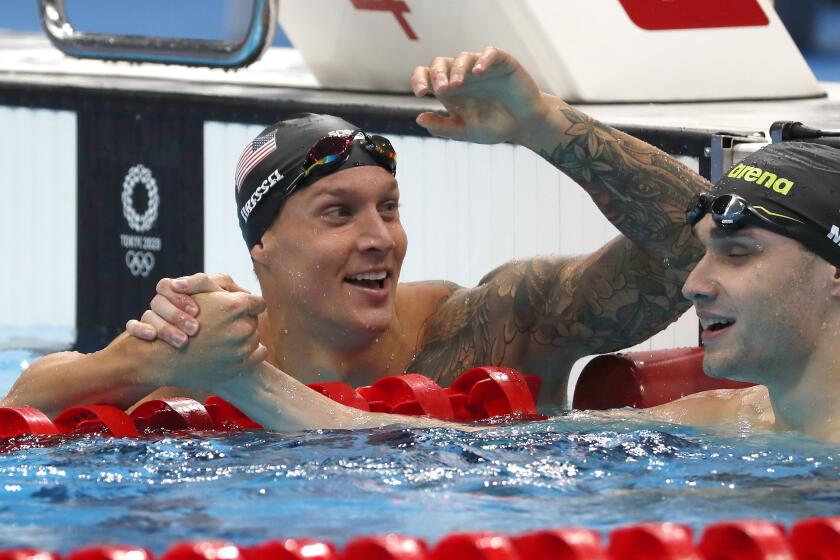Column: Give them something shiny? IOC oblivious to Japan’s attitude about Olympics
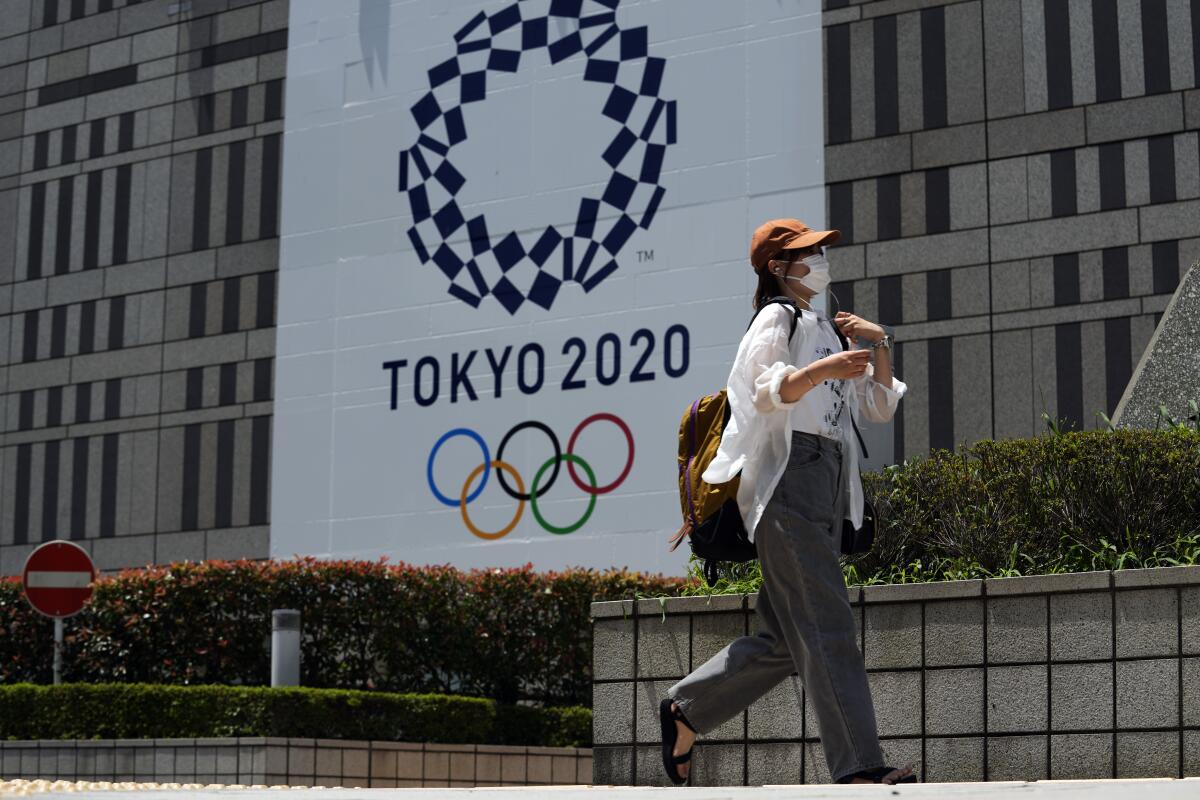
TOKYO — Dangle some shiny objects in front of them and maybe they’ll forget about the coronavirus.
That’s basically how International Olympic Committee spokesman Mark Adams described the process of winning over the locals, who wanted these Games to be canceled or postponed again, according to recent polling.
Asked Friday whether he sensed a shift in Japanese attitudes towards the Olympics, Adams mentioned the host country’s gold medal count, which several hours later reached a national record: 17.
“I think that will have a big effect,” Adams said at a news briefing at the Olympic Main Press Centre.
To his point: The broadcasts of some events won by Japanese athletes earned market shares of more than 20%.
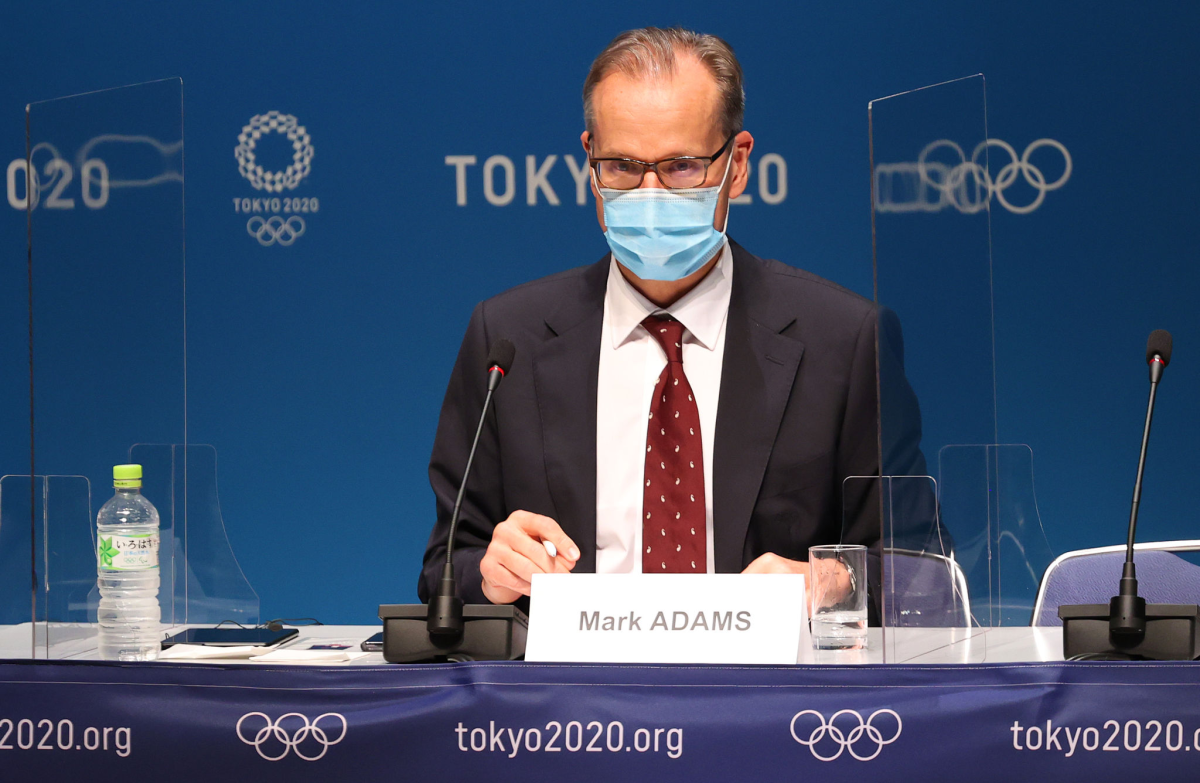
If Adams sounds as if he’s trying to downplay or ignore the pandemic, it’s probably because he is. And he’s not alone, as the stakeholders of these Olympics are doing what they can to convince the public the Games have nothing to do with the explosive spread of the coronavirus.
The pandemic has worsened considerably since the Games started, with Tokyo exceeding 3,000 new reported cases of coronavirus each of the last four days, including a single-day record of 4,058 on Saturday. The coronavirus is also spreading through the Olympic bubble, in which 21 new cases were reported.
Medical resources are already stretched, with the majority of hospital beds in Tokyo for serious COVID-19 cases occupied.
Caeleb Dressel reconfirms his stardom with a world record in the 100 butterfly and Katie Ledecky wins gold in the 800 freestyle at the Tokyo Olympics.
Prime Minister Yoshihide Suga, who extended and expanded the country’s state of emergency on Friday, has insisted what’s happening in the Olympic bubble is unrelated to what’s happening on the outside. Japan’s most strident backer of these Games, Suga has come under heavy scrutiny for his insistence on staging the Olympics in the middle of a global pandemic.
Predictably, the Japanese media have started laying the groundwork to blame foreigners for this health crisis. Images of Georgian wrestlers visiting the Tokyo Tower were widely circulated, leading to the wrestlers’ expulsion from the Games. Olympics broadcast rights holder NHK recently ran a story on its website about foreign journalists violating protocol by eating and drinking alcohol together at their hotel.
The closing ceremony is Aug. 8.
::
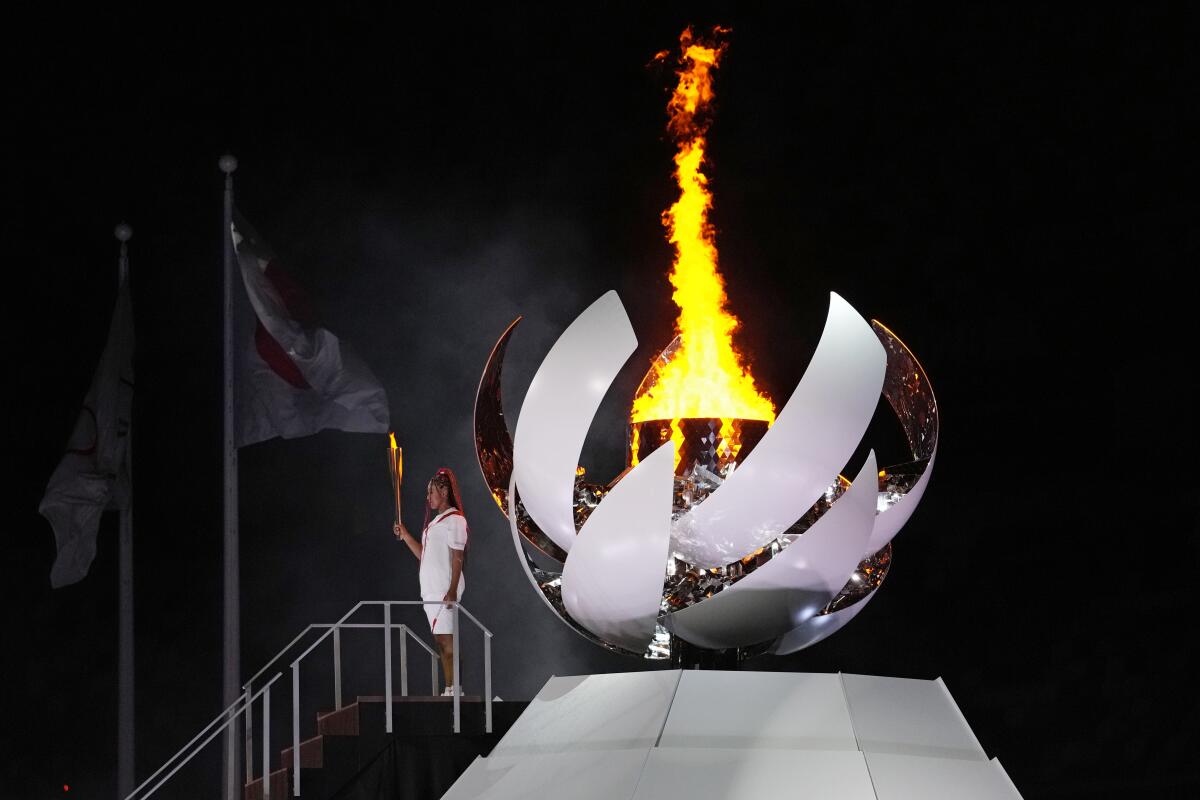
Naomi Osaka was chosen to light the Olympic cauldron as a symbol of a more diverse and inclusive Japan, but the tennis star continues to be viewed as an outsider here.
The question of whether Osaka is Japanese hasn’t been talked about much in the press tribunals at these Games, namely because it’s assumed that she isn’t.
“I think the media has been very good at using her,” one Japanese journalist told me.
Osaka, who is a Japanese citizen, was born to a Haitian father and Japanese mother. She moved to the United States when she was 3. She understands Japanese well enough to be able to field questions in the language, but usually responds in English.
In a culture in which people rarely stage public protests or talk about their psychological problems, Osaka’s advocacy for social justice and mental health “reminds us she’s different,” another reporter said.
The same reporter continued, “But if she wants to say she’s Japanese, let her.”
However, not everyone shares that sentiment, a reality that was reflected across various social media platforms after Osaka was eliminated from the tennis tournament last week. Some of the obscenely racist comments were posted by the contributing editor of a news aggregation site, leading the website’s parent company Tokuma Shoten to dissolve its contract with him.
::
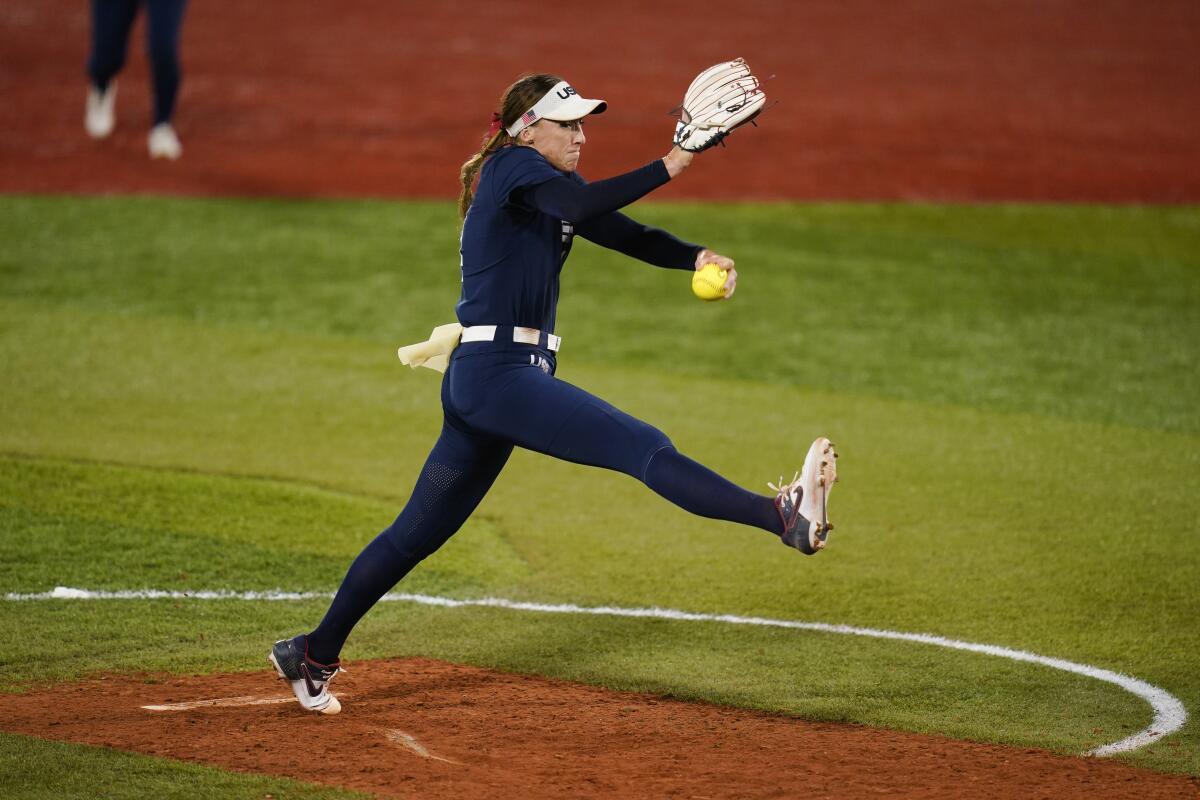
After Matt Harvey pitched his first game for the Angels, I wrote, “‘The Dark Knight” has returned.” He was released three months later.
I once compared USC running back Kenan Christon to Reggie Bush. Christon didn’t start a single game last year.
But my worst whiff of all might have involved Monica Abbott, the pitcher who helped the U.S. softball team win a silver medal.
I was a young reporter at the San Jose Mercury News and asked to select the newspaper’s all-Central Coast Section high school softball team, as well as choose a player of the year. I hadn’t covered much, if any, softball, and it showed. Abbott, who pitched for North Salinas, probably should have been the player of the year, but I chose someone else.
Abbott went on to become one of the most decorated players in softball history. A collegiate player of the year, five-time National Pro Fastball pitcher of the year, five-time Japanese Softball League MVP, and three-time world champion, the now-36-year-old Abbott has won virtually everything a softball player can win — except for the Mercury News player of the year award.
::
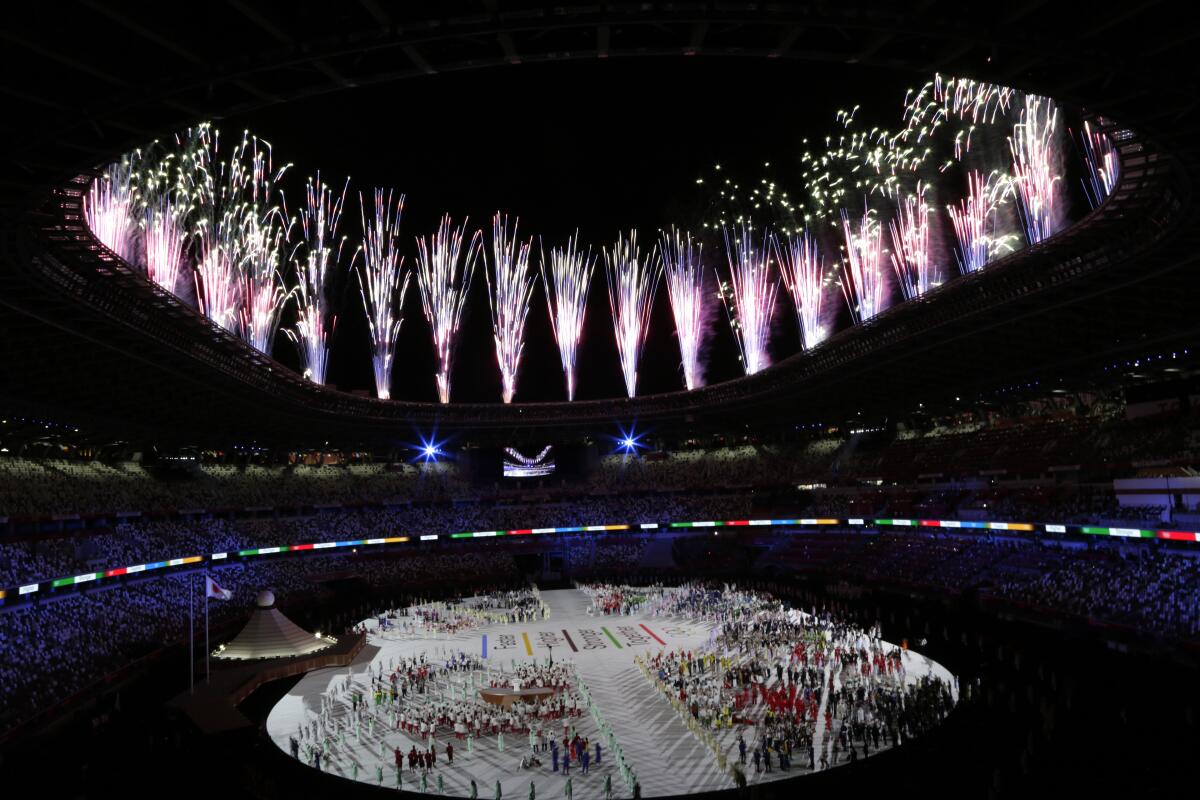
Generally speaking, public restrooms here are much cleaner than they are in the United States, and using them is significantly more comfortable. The restrooms at the Olympic Stadium elevate the experience to another level, as they offer maximum privacy. Not only is the bottom of the door on each stall only an inch or so off the ground, sitting on the toilet activates a recording of running water and chirping birds that is intended to drown out any embarrassing sounds.
The spectacular Olympic Stadium bathrooms reminded me of something once said to me by Hiroshi Sasaki, who coached Shohei Ohtani at Hanamaki Higashi High. Hanamaki Higashi’s baseball players live in dorms and are assigned chores. The pitchers had to clean the bathrooms, and Ohtani and current Seattle Mariners left-hander Yusei Kikuchi weren’t spared.
“If you go to a nice department store, the toilets are magnificent,” Sasaki explained. “If you go to a nice hotel, the toilets are important. If you see a toilet, you can see the value of a place, the purpose with which the people there approach their work. It’s the most important place in an establishment, just like the mound is the most important place on the field.”
More to Read
Go beyond the scoreboard
Get the latest on L.A.'s teams in the daily Sports Report newsletter.
You may occasionally receive promotional content from the Los Angeles Times.

